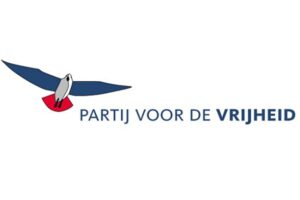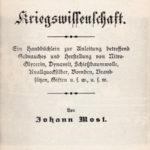PVV Blog 11 ~ The Ideology Of The PVV In Practice: Conclusion
No Comments yet 09-02-2024 ~ In this final episode of the series, I conclude my reflections and venture a prediction on how the new government, with its PVV contingent, will fare. The reason for ending the series is twofold. Firstly, I have based this series on my earlier work on the PVV, as expressed in my books De ideologie van de PVV. Het kwade goed en het goede kwaad (2012) and The Dutch Party for Freedom. An Analysis of Geert Wilders’ Thinking on Islam (2012). I noticed that everything I had noted and analyzed in the books regarding the PVV’s ideology had become almost exhausted. In this series, I have extensively discussed the positions and considerations that party leader Wilders and party ideologue Bosma once committed to paper, which I analyzed in both books. Secondly, I notice that all the points I have discussed now also frequently appear in the national and international press. It seems that what I wrote about in 2012 has now become common knowledge in the reporting of the PVV-critical press. And that, of course, gives me much satisfaction. The press is aware of the very poor democratic structure of the PVV; they know of the now more than ever unhidden agenda of the PVV to make the Netherlands, and preferably all of Europe, Islam-free and thus Muslim-free. Of the close relationships the PVV maintains with like-minded individuals in Europe, such as Marine Le Pen of the French Rassemblement National and Hungarian Prime Minister Orbán of the Fidesz party. This series will remain online for the time being, but it will also be published in full on my website and on my Academia page, both in Dutch and English, and perhaps later in French and Arabic as well.
09-02-2024 ~ In this final episode of the series, I conclude my reflections and venture a prediction on how the new government, with its PVV contingent, will fare. The reason for ending the series is twofold. Firstly, I have based this series on my earlier work on the PVV, as expressed in my books De ideologie van de PVV. Het kwade goed en het goede kwaad (2012) and The Dutch Party for Freedom. An Analysis of Geert Wilders’ Thinking on Islam (2012). I noticed that everything I had noted and analyzed in the books regarding the PVV’s ideology had become almost exhausted. In this series, I have extensively discussed the positions and considerations that party leader Wilders and party ideologue Bosma once committed to paper, which I analyzed in both books. Secondly, I notice that all the points I have discussed now also frequently appear in the national and international press. It seems that what I wrote about in 2012 has now become common knowledge in the reporting of the PVV-critical press. And that, of course, gives me much satisfaction. The press is aware of the very poor democratic structure of the PVV; they know of the now more than ever unhidden agenda of the PVV to make the Netherlands, and preferably all of Europe, Islam-free and thus Muslim-free. Of the close relationships the PVV maintains with like-minded individuals in Europe, such as Marine Le Pen of the French Rassemblement National and Hungarian Prime Minister Orbán of the Fidesz party. This series will remain online for the time being, but it will also be published in full on my website and on my Academia page, both in Dutch and English, and perhaps later in French and Arabic as well.
The New Government
The debate on the government declaration on July 3 and 4 already led to a significant clash between the newly minted Prime Minister Dick Schoof and PVV leader Wilders, which I reported on in the previous episode of this blog. The prime minister identified himself in his observations with the later Dutch Olympic champion marathon runner Sifan Hassan, of Ethiopian origin, saying he considered her someone who belongs to society. The prime minister has so far acted inclusively (‘everyone is part of society’), and I have yet to catch him making an ‘exclusive’ statement (‘us versus them’).
Furthermore, the ministers from the PVV are confronted with the daily realities of governance. Minister Agema of Health reported that she could do little or nothing to keep a hospital in Heerlen, in the south of the country, open, even though she repeatedly argued as a Member of Parliament at the time that hospitals should not be closed and that the government should take the necessary measures to prevent this.
Minister Faber of Migration and Asylum told the press that there is an ‘asylum crisis,’ on the basis of which the government would no longer be obliged to take in asylum seekers or would be able to refuse them. However, the minister had to temper her words within a few hours.
I believe that the PVV ministers are, as it were, caught in the web of the reality of daily governance and are confronted with the sometimes-limited possibilities that exist, both administratively and financially, to realize the PVV’s agenda. Moreover, the PVV is one of four political parties in the government and potentially faces three other parties. While the PVV may find itself in the center of power, it is not alone.
The Troublemaker Wilders
The only real and also powerful troublemaker is party leader Geert Wilders, who continues to express his still unabashedly populist and racist views from the sidelines, particularly on X (formerly Twitter). A simple look at his X timeline shows the reader that he is no less fierce than in the past.
The question is what happens next. I think this cabinet is seriously trying to work on its program, and we will see (as they say in Dutch) that the soup is not eaten as hot as it is served. The PVV ministers are bound by the coalition agreement, and that certainly does not consist solely of pure PVV points of view. Prime Minister Dick Schoof will continue to act inclusively, and this will lead to a further deterioration of the relationship between him and Geert Wilders in the future.
No Physical PVV Power Base
PVV leader Wilders will also be confronted with the fact that he has never bothered to give his party more structure. Like-minded parties such as the Rassemblement National and Fidesz in Hungary have a well-developed party apparatus, with a party office, a youth wing, and a scientific bureau. The PVV has none of these. The PVV is a party where Geert Wilders is the only human member. But now that he is in the center of power, this would have been the chance to gain more influence than ever. But if you only have a phone (that is never answered), an email address, and a website, and no manpower at your disposal, and on top of that, if you have to or want to do almost everything alone, then you miss the opportunity to build power. But who knows, maybe PVV leader Wilders will gain new insights and start building. But I think it will be too late.
The Future of the Netherlands
Thus, the Netherlands faces a potentially turbulent time. I will continue to follow the cabinet from the sidelines, and I have full confidence that others will continue to critically monitor the PVV and this government. I hope the damage this government can do to society will be limited. Time will tell.
You May Also Like
Comments
Leave a Reply







